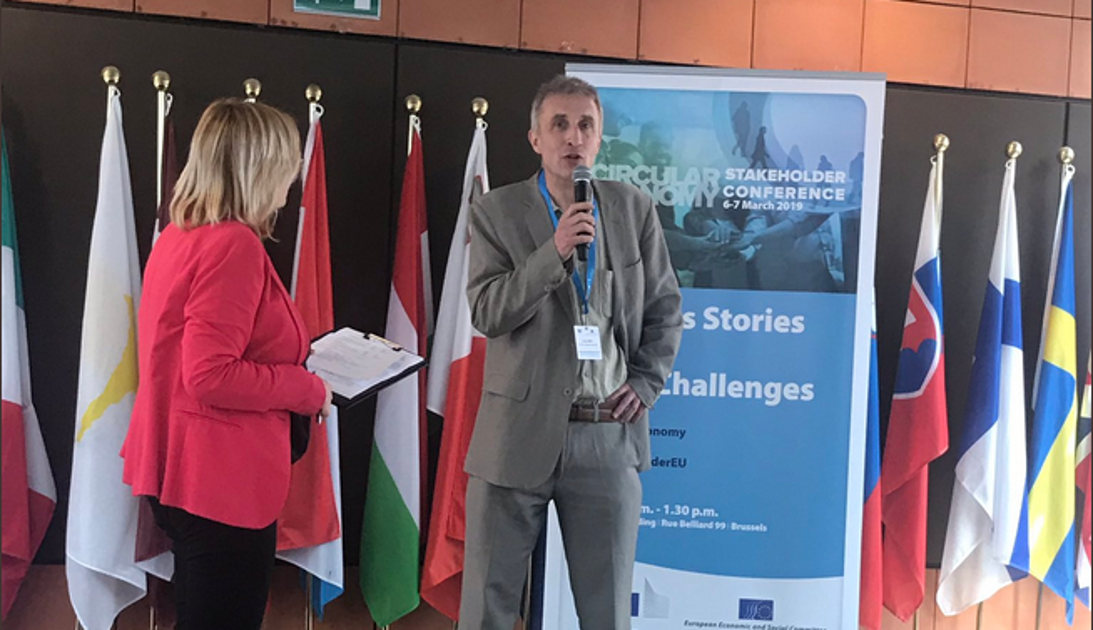Policy adviser Laurent Zibell spoke at the event (pictured) about the importance of the social dimension to the success of the circular economy and also distributed 50 copies of our policy brief on the issue.
The circular economy is a major shift to take place in the production and consumption patterns of industrial products. Its purpose is to maintain their economic and ecological value as long as possible, with longer-lasting products that are maintained, repaired, upgraded before being recycled – while avoiding the final generation of waste. It can bring a major contribution to the mitigation of climate change.
The event celebrated the achievements of the circular economy action plan of 2015: of the 54 policies foreseen, all have either been adopted (e.g. on waste or on single-use plastics) or proposed by the Commission.
It was also the occasion to broaden the scope of policy reflection and to look forward to the work programme of the next Commission.IndustriAll European, being represented in the Coordination Group of the EU Circular Economy Stakeholder Platform, organised a well-attended panel on the impact of circular economy on employment, where two reports were presented and discussed.
These reports conclude that the impact should be moderately positive overall, but with a shift from production to maintenance and repair activities.
IndustriAll Europe general secretary Luc Triangle said: “The circular economy can have a very positive impact on European industry, and contributes to mitigate climate change. We must however ensure that the jobs being created in industrial maintenance and repair match the quality of those lost in direct production. We must also design our financial system to make sure that the lease of high-quality, longer-life products remains affordable for."
Read more: industriAll European policy brief on the circular economy
